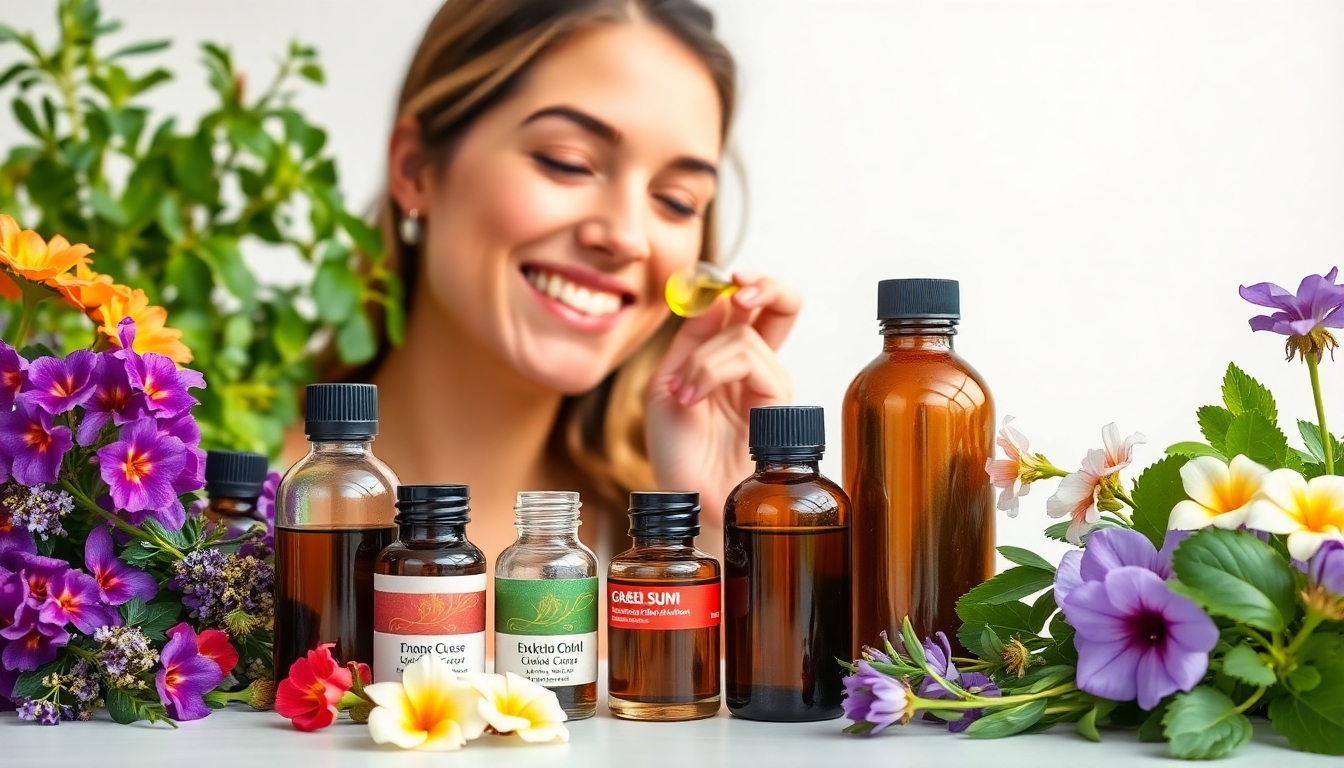Unlocking the Secrets: How Coconut Oil for Skin Can Transform Your Beauty Routine
Discover how coconut oil can transform your beauty routine with tips, hacks, and benefits for radiant skin!

Coconut oil has become a popular ingredient in beauty routines for good reason.
This versatile oil offers numerous benefits for your skin, making it a valuable addition to your daily regimen.
Whether you're looking to hydrate, heal, or enhance your natural glow, coconut oil can help you achieve your skincare goals.
In this article, we'll explore how to unlock the secrets of coconut oil and transform your beauty routine effectively.
Coconut Oil for Skin — Quick Summary
Quick Picks
What to Know About Coconut Oil
- Acts as a rich emollient + occlusive; great at sealing in moisture.
- Best for very dry, non‑acne‑prone skin and body areas (elbows, legs, hands, lips).
- High in lauric acid; offers some antimicrobial benefits but can be comedogenic.
- Face use is hit or miss: may clog pores (rated ~3–4/5); patch‑test first.
- Use as the last step over humectants/cream to reduce transepidermal water loss (TEWL).
- Virgin/cold‑pressed is richer; fractionated/MCT feels lighter and may be less pore‑clogging.
- Works as a makeup remover/oil cleanser; follow with a gentle water‑based cleanser.
- Not a sunscreen and not photosensitizing; always finish with SPF 30+ in the AM.
- If you’re acne‑ or Malassezia‑prone, consider alternatives like squalane or mineral oil.
- Store closed, room temp (melts ~24 °C); discard if rancid or smells off.
Tip: A tiny amount goes a long way—aim for a thin, non‑greasy film.
The Magic of Coconut Oil for Skin

Why Coconut Oil is a Game Changer
Coconut oil is like a superhero for our skin!
It’s packed with nutrients that can help us achieve that radiant glow we all want. From moisturizing to healing, this oil does it all. Plus, it’s super easy to use in our daily routine.
Nutrient-Rich Composition
What makes coconut oil so special?
It’s loaded with saturated fats, vitamins, and antioxidants. These elements work together to keep our skin hydrated and healthy.
Here’s a quick look at its benefits:
Nutrient | Benefit |
|---|---|
Saturated Fats | Locks in moisture |
Vitamin E | Promotes healing |
Antioxidants | Fights free radicals |
How Coconut Oil Benefits Different Skin Types
No matter your skin type, coconut oil can be a game changer.
Here’s how it helps:
- Oily Skin: Balances oil production.
- Dry Skin: Provides deep hydration.
- Sensitive Skin: Soothes irritation.
Let’s embrace the versatility of coconut oil in our beauty routine! It’s a simple yet effective way to unlock our skin’s potential.
With coconut oil, we can unlock youthful skin and enjoy all its amazing benefits!
Incorporating Coconut Oil into Your Daily Routine
Morning Rituals with Coconut Oil
Starting our day with coconut oil can be a game changer! We can use it as a moisturizer or even as a makeup remover.
A little goes a long way!
Here’s how we can incorporate it:
- Moisturizer: Apply a small amount to our face after cleansing.
- Makeup Remover: Use it to wipe away any leftover makeup from the night before.
- Lip Balm: A dab on our lips keeps them soft and hydrated.
Nighttime Skincare Routine
At night, coconut oil can help our skin repair itself. Here’s what we can do:
- Cleanse: Start with a gentle cleanser to remove dirt.
- Apply Coconut Oil: Use it as a night cream to lock in moisture.
- Massage: Gently massage it into our skin for better absorption.
DIY Coconut Oil Beauty Hacks
Let’s get creative! Here are some fun ways to use coconut oil:
- Face Masks: Mix it with honey for a hydrating mask.
- Body Scrub: Combine it with sugar for a natural scrub.
- Hair Treatment: Apply it to our hair for deep conditioning.
Remember, coconut oil is versatile and can fit into our routine in many ways! Let’s embrace its benefits and enjoy glowing skin together!
Coconut Oil for Specific Skin Concerns
Healing Scars and Blemishes
Coconut oil is like a superhero for our skin!
It helps heal scars and blemishes thanks to its natural antibacterial properties.
When we apply it regularly, it can speed up the healing process and reduce the appearance of those pesky marks. Here’s how we can use it:
- Apply a small amount directly to the scar or blemish.
- Gently massage it in for a few minutes.
- Let it absorb overnight for best results.
Soothing Sensitive Skin
For those of us with sensitive skin, coconut oil can be a game changer. It’s super gentle and can help calm irritation. We can use it as a moisturizer or even as a makeup remover!
Here’s a quick guide:
- Use it as a moisturizer after cleansing.
- Apply it to red or irritated areas to soothe.
- Mix it with a few drops of essential oils for added benefits.
Combating Dryness and Flakiness
If we’re dealing with dry or flaky skin, coconut oil is our best friend.
It locks in moisture and keeps our skin hydrated. Here’s how to incorporate it:
- Use it after showering on damp skin to seal in moisture.
- Mix it with sugar for a DIY scrub to exfoliate dry patches.
- Apply it before bed for overnight hydration.
Remember, coconut oil is versatile! It can tackle various skin concerns, making it a must-have in our beauty routine. Let’s embrace its magic!
DIY Coconut Oil Treatments

Homemade Coconut Oil Face Masks
Let’s get crafty with some fun DIY face masks using coconut oil! Here are a few easy recipes:
- Coconut Oil and Honey Mask: Mix equal parts coconut oil and honey. Apply it to your face for 20 minutes, then rinse. This mask is great for hydration!
- Coconut Oil and Avocado Mask: Mash half an avocado and mix it with a tablespoon of coconut oil. Apply for 15 minutes to nourish dry skin.
- Coconut Oil and Oatmeal Mask: Combine 2 tablespoons of oatmeal with a tablespoon of coconut oil. Leave it on for 10 minutes for a soothing effect.
Coconut Oil Body Scrubs
Who doesn’t love a good scrub? Here’s how we can make our own:
- Coconut Oil and Sugar Scrub: Mix 1 cup of sugar with 1/2 cup of coconut oil. Use it in the shower to exfoliate and moisturize at the same time!
- Coconut Oil and Coffee Scrub: Combine 1 cup of coffee grounds with 1/2 cup of coconut oil. This scrub helps to reduce the appearance of cellulite.
- Coconut Oil and Sea Salt Scrub: Mix 1 cup of sea salt with 1/2 cup of coconut oil for a refreshing scrub that leaves our skin feeling smooth.
Customizing Coconut Oil with Essential Oils
Let’s take our coconut oil to the next level by adding some essential oils! Here’s how:
- Lavender for Relaxation: Add a few drops of lavender oil to coconut oil for a calming effect.
- Tea Tree for Acne: Mix in tea tree oil to help combat breakouts.
- Peppermint for Invigoration: A few drops of peppermint oil can give us a refreshing boost!
Remember, experimenting with these DIY treatments can be a fun way to discover what works best for our skin! Let’s enjoy the process and embrace our natural beauty!

Tips for Choosing and Storing Coconut Oil

Selecting the Best Quality Coconut Oil
When we’re on the hunt for coconut oil, going for unrefined, virgin coconut oil is the way to go!
This type keeps all the good stuff that our skin loves. If we can find organic options, even better! They ensure we’re using the purest form of the oil.
Proper Storage Techniques
To keep our coconut oil fresh, we should store it in a cool, dry place. If we live in a warmer area where it tends to stay liquid, consider putting it in the refrigerator to keep it solid.
Here’s a quick list of storage tips:
- Use a dark container to protect it from light.
- Keep it away from heat sources to prevent it from melting.
- Refrigerate if needed to maintain its texture.
Common Mistakes to Avoid
Let’s avoid these common pitfalls:
- Storing it in a warm place – this can cause it to spoil faster.
- Using metal containers – they can react with the oil.
- Not sealing it properly – air can lead to oxidation.
Remember, proper storage is key to keeping our coconut oil effective and long-lasting!
Combining Coconut Oil with Other Natural Ingredients

Coconut Oil and Aloe Vera
Mixing coconut oil with aloe vera is like giving our skin a refreshing drink!
This combo hydrates and soothes, making it perfect for sunburns or irritated skin. Just blend equal parts and apply it to your face or body for a cooling effect.

Coconut Oil and Honey
When we combine coconut oil with honey, we create a powerful moisturizer.
Honey is known for its antibacterial properties, while coconut oil locks in moisture. This mix is great for dry skin! Just apply it as a mask for about 20 minutes and rinse off.

Coconut Oil and Essential Oils
Adding a few drops of essential oils to coconut oil can elevate our skincare game. Here are some popular combinations:
- Lavender: Calming and great for sensitive skin.
- Tea Tree: Helps fight acne with its antibacterial properties.
- Peppermint: Refreshing and invigorating, perfect for a morning boost.
Let’s remember, mixing coconut oil with other natural ingredients can enhance its benefits and make our skincare routine even more enjoyable!
Potential Drawbacks and Precautions
Understanding Skin Reactions
While coconut oil is a fantastic addition to our beauty routine, it’s important to remember that not everyone’s skin reacts the same way.
Some of us might experience irritation or breakouts, especially if we have oily skin. This is because coconut oil can clog pores, leading to unwanted issues. So, it’s wise to do a patch test before slathering it all over our face.
Patch Testing Coconut Oil
To avoid any nasty surprises, here’s how we can patch test:
- Apply a small amount of coconut oil on a discreet area of skin, like the inside of our wrist.
- Wait for 24 hours to see if any redness or irritation occurs.
- If all is well, we can confidently use it on our face!
When to Avoid Using Coconut Oil
There are certain situations where we might want to skip coconut oil altogether:
- If we have eczema or other skin conditions that can flare up with heavy oils.
- If we notice any signs of an allergic reaction, like redness or swelling.
- If our skin feels greasy or overly oily after application.
Remember, it’s all about listening to our skin! If something doesn’t feel right, it’s best to stop using it.
Choosing the Right Coconut Oil
When picking coconut oil, we should look for high-quality options. Here’s a quick guide:
Type of Coconut Oil | Description |
|---|---|
Virgin Coconut Oil | Cold-pressed, retains nutrients, best for skin use |
Refined Coconut Oil | Processed, may lack some nutrients, but has a higher smoke point |
By being mindful of these factors, we can enjoy the benefits of coconut oil while minimizing any potential drawbacks!
Wrapping It Up: The Coconut Oil Magic
Coconut oil is like a superhero for your skin.
It’s natural, easy to use, and can really change your beauty game. Whether you’re using it to remove makeup, moisturize, or even as a hair treatment, this oil has got your back. Plus, it smells amazing!
So why not give it a try? You might just find that this simple ingredient becomes your new best friend in your beauty routine. Remember, beauty doesn’t have to be complicated; sometimes, the best solutions are the simplest ones!
FAQ — coconut oil for skin
Clear answers. Smart use. Avoid the zits.
It can help dry, intact skin by reducing water loss and softening rough spots. It also shows anti-inflammatory and antimicrobial activity in studies. But it’s heavy and not ideal for oily or acne-prone areas. Use it mainly on body skin, not as an all-purpose face cream.
Usually not recommended. It’s highly occlusive and can trap sebum, which may trigger breakouts. If you still want to test it, patch test on the jawline for 3 nights and watch for clogged pores. Most people do better with lighter, non-comedogenic moisturizers on the face.
Yes, it ranks high on comedogenic scales and can clog pores for many people. Risk is higher on the T-zone or acne-prone skin. If you’re breakout-prone, skip it on the face and back. Choose alternatives like squalane or glycerin-based lotions instead.
It can soothe and reduce moisture loss on dry, non-broken skin and may help some with eczema between flares. Apply as a final step to seal in hydration over a fragrance-free cream. If skin is cracked, inflamed, or infected, avoid home treatments and get medical advice. Stop if stinging, redness, or pimples appear.
Use a pea-to-dime-sized amount on damp skin after showering to lock in water. Focus on dry zones (shins, elbows, hands); avoid pore-prone areas like the face or chest. Pick cold-pressed, unrefined oil and store cool, dark, and tightly closed. If it stains clothes, apply less and let it absorb 5–10 minutes.







